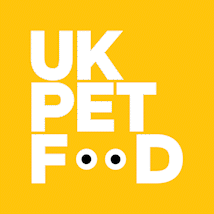Feeding guides for Indoor Birds
Here are some important factors to consider about bird nutrition when choosing what to feed your pet birds:
Parrots enjoy a varied diet
In the wild, a parrot's diet is enormously varied. For pet birds, a commercially formulated diet is appropriate, supplemented with fresh produce.
Ensure you provide foraging opportunities to replicate natural feeding behaviors.
Encourage foraging behaviours
In the wild, birds spend the majority of their time foraging for food. This behavior should be encouraged for pet birds too, for example by scatter feeding, using puzzle feeders, and foraging trees.
The type of equipment provided, or methods adopted, will depend on the species.
Include fresh vegetables in their diet
Fresh produce with low energy-density is a great supplement. Dark green, leafy vegetables are particularly good for their vitamin and mineral content.
Examples of appropriate vegetables are spinach, celery, carrots, beetroot, peas, beans, and lightly cooked corn on the cob.
Unlimited supply of fresh drinking water
Always provide fresh, clean water. Insufficient water intake can lead to dehydration and various health complications.
Give them healthy treats in moderation
Giving healthy treats, occasionally and in small amounts, can be great for bonding and as training rewards.
Small pieces of fruit such as apple, grapes, pear, and banana, and commercial treats with no added sugar are suitable.
No table scraps, please!
Do not feed your parrot with scraps from the table, such as salty and sugary human foods. Never feed avocado, chocolate, caffeine, mushroom, pulp, sweet pea, or sage.
Visit the Parrot Society's website for a list of other foods to avoid.
Monitor your parrot's body condition
Monitor your parrot’s body condition score to make sure they are not overweight or underweight.
You can use the UK Pet Food Bird Size-O-Meter for further guidance.
Can I give my bird treats?
Small quantities of fresh fruit and vegetables can be offered as occasional treats for your bird, adding variety and enrichment to their diet. However, it’s important not to overdo it, as treats are an additional source of calories that could contribute to weight gain if given excessively. Stick to appropriate portion sizes, and ensure treats complement the bird's main balanced diet rather than replace it. Always remove uneaten fresh food promptly to prevent spoilage and potential health risks.
In the wild, birds eat millet sprays fresh from the branches, and millet sprays can offer both a source of entertainment and a healthy treat for indoor birds within the home. Other treats, such as ‘seed sticks’ are also widely available and provide not only nutrition, vitamins and minerals but also are a great source of activity for the birds.
As with all additional sources of nutrition, care should be taken to avoid any over-feeding of your domestic bird.
Different species with different nutritional needs
Each bird species has unique dietary requirements, and understanding these needs is essential to maintaining their health and well-being. While some birds thrive on seed-based diets, others may require a mix of pellets, fresh fruits, vegetables, and specialised supplements.
Additionally, some species have specific sensitivities or dietary restrictions – such as avoiding certain foods that can be toxic to birds, like avocado or chocolate. Consulting with a veterinarian or avian nutrition expert is recommended to tailor a diet that meets the nutritional demands of your bird’s species.

Selective feeders
Some birds, such as those in the parrot family, are known for being selective feeders. This means they often pick out their favourite components from a mix of food. While it might be tempting for owners to indulge their bird’s preferences, this behaviour can lead to an imbalanced diet, as the bird may miss out on some essential nutrients. Owners should monitor feeding habits closely and ensure their bird consumes a variety of food types, including pellets, seeds, fruits, and vegetables, to maintain proper nutrition. Offering balanced meals in controlled portions and introducing new foods gradually can help combat selective feeding behaviours.

Small birds
Small birds, like finches and canaries, have high metabolisms and therefore require significant amounts of food relative to their body size. These birds may consume up to 30% of their body weight in seed daily to meet their energy needs. Owners should provide a consistent supply of fresh, high-quality seed blends, along with occasional supplements such as millet sprays or leafy greens for variety. Clean feeding stations and regularly monitored portions are essential to maintaining the health of these delicate species.

Softbill birds
Softbills tend to be kept by more experienced bird keepers.
These bird species have specific nutritional needs, depending on whether they are insectivorous, carnivorous, nectivorous (nectar feeders), frugivorous (fruit eaters), or omnivorous.


